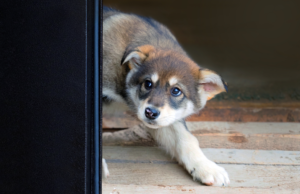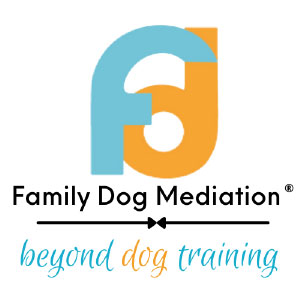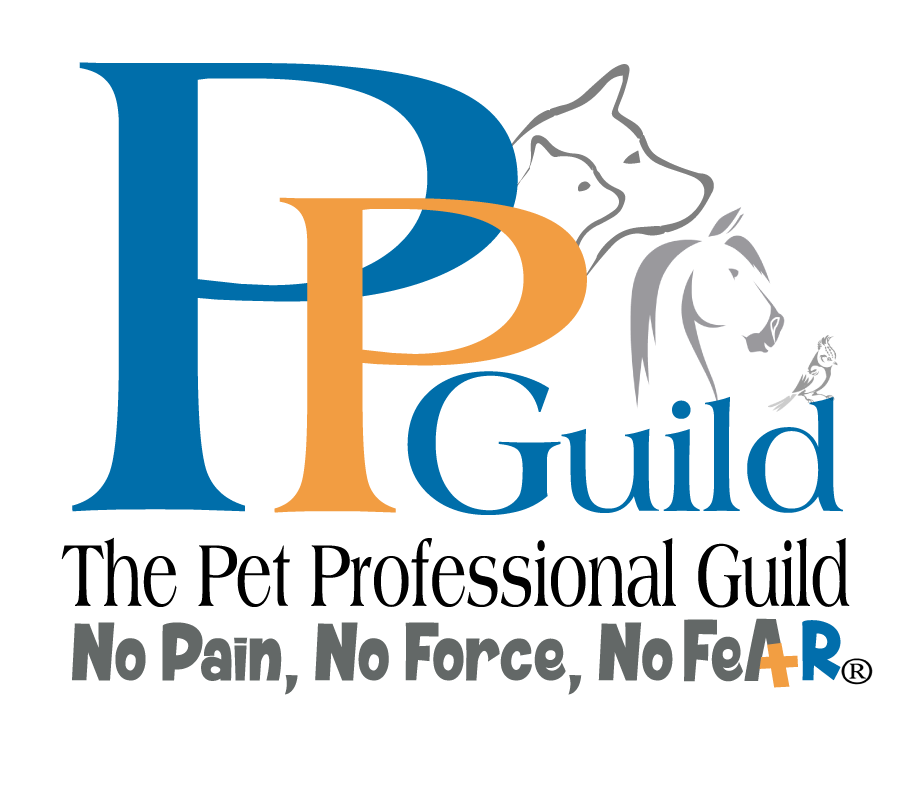Having a puppy face their fears is a common thought many puppy parents have. It is important to understand that your puppy is still learning and may be fearful of certain things in their environment. While it may seem like a good idea to push your puppy into confronting something that scares them, in order to ‘get over it’, doing so can actually be counterproductive and cause behavior problems. There are long-term consequences of making your puppy face their fear.
The pitfalls of making a puppy face their fears
Forcing a puppy to face their fears can lead to long term behavior problems. When a puppy is scared, they are in a state of heightened stress and may react defensively if they feel threatened. This can result in aggressive behavior towards their guardian, other pets, or strangers. A scared puppy may become destructive, causing damage to your home or belongings as they try to escape the source of their fear. We see this a lot with separation anxiety. The stress of being forced to confront something that scares them can cause anxiety. Anxiety can manifest into barking, whining, or pacing.
Making a puppy confront something that is scary to them can also cause them to become more frightened. Puppies learn by association and consequence. When they are forced to do something scary, they learn to associate that fear with the activity or object. This can lead to a long-term fear response that can be difficult to overcome.
How to help puppies overcome their fears without causing long-term behavior problems
So, what can you do to help your puppy overcome their fears? Positive reinforcement training is a highly effective way to help a fearful puppy feel more comfortable in their environment. This type of training involves associating something your puppy loves, such as food or play, with the scary person or object.
Puppies learn through association and repetition. When they are exposed to something repeatedly in a POSITIVE and non-threatening way, they learn what is good and safe. This is why it is important to be patient and consistent when training your puppy. When a puppy is scared or unsure of something it can take as little as several sessions of positive reinforcement training for your puppy to feel good in the presence of “the scary thing”. Puppies who are more frightened or scared could take weeks to help them feel comfortable with something that scares them.
Reasons puppies might be frightened
There are many reasons why a puppy might be frightened of something. It could be due to a lack of exposure to certain sights, sounds, textures, people, dogs, or smells during their critical socialization period, which occurs between 3 and 16 weeks of age. Alternatively, a puppy may have had a negative experience with something that has made them afraid. Whatever the reason, it’s important to approach your puppy’s fear with empathy and understanding, rather than forcing them to face it.
There are many myths surrounding how to help puppies with their fears such as being firmer and “toughening up” your puppy. This is simply not true. Just like humans, puppies have different personalities and temperaments, and some may be more fearful than others.
An example you can relate to
Imagine being afraid of snakes or spiders. Now imagine if someone forced you to face your fears by locking you in a room with the snakes or spiders. Do you think you would be less afraid being made to confront the thing that scares you? How would you feel about the person who forced you into that situation?
 Final thoughts…
Final thoughts…
While it may be tempting to force your puppy to face their fears, doing so can actually be counterproductive and cause more harm than good. There are long-term consequences of making your puppy face their fear.
Be patient and consistent! Always approach your puppy’s fear with empathy and understanding. It will take time and effort to help your puppy. Using positive training methods and gradually exposing your puppy to the source of their fear in a safe and controlled manner will help your puppy feel comfortable in their environment and become a happy, well-adjusted pet.
Are you looking for the best and most effective way to train your puppy? Yes, I could use help navigating through puppyhood.












